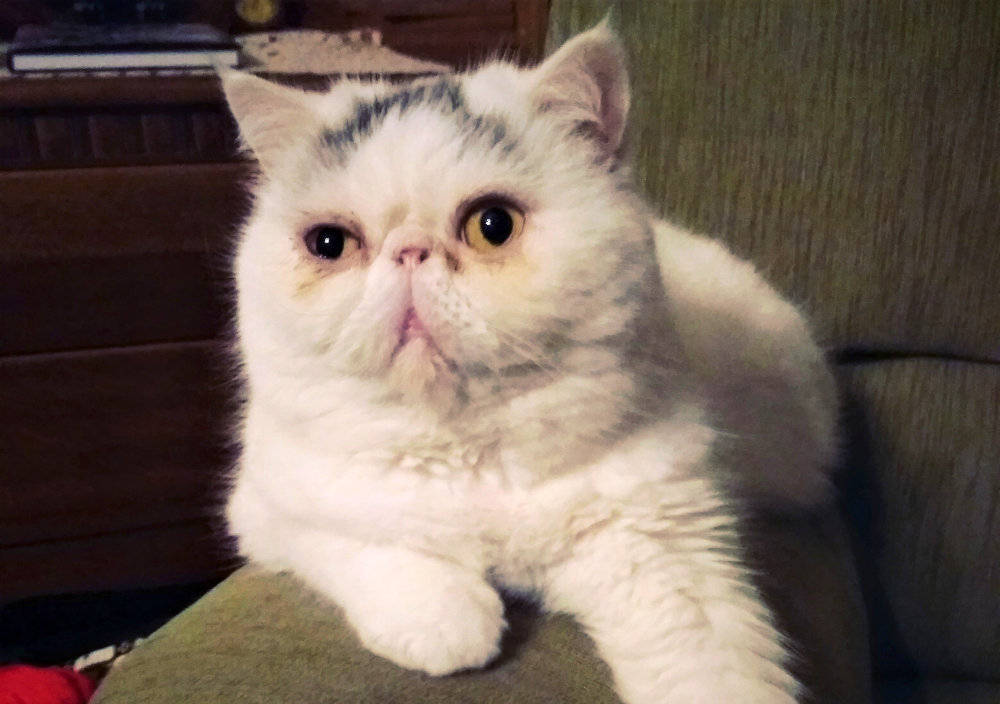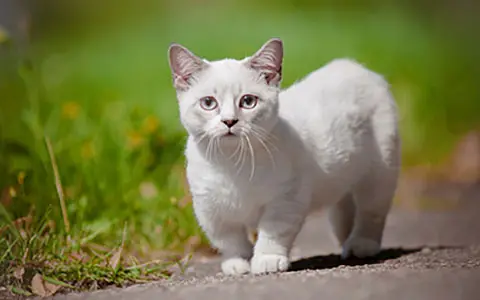Munchkin cats are prone to certain health issues such as lordosis, skeletal deformities, and hip dysplasia. Munchkin cats, known for their short legs, are susceptible to specific health conditions like lordosis, skeletal deformities, and hip dysplasia.
These breed-specific health problems can impact the overall well-being and quality of life for this unique feline breed. Understanding these potential health concerns is crucial for Munchkin cat owners and prospective adopters, as early detection and proper management can help mitigate the impact of these diseases.
We will delve into the main diseases that can affect Munchkin cats, discussing their causes, symptoms, and potential treatment options. By being aware and proactive, you can ensure your Munchkin cat enjoys the best possible health and happiness throughout their lifespan.
Understanding The Munchkin Cat Breed
Munchkin cats, known for their short legs, are a unique breed that has captured the hearts of many cat lovers. These adorable felines have a distinctive appearance and are often described as having a “perpetual kitten” look. However, like any other breed, Munchkin cats are prone to certain health issues.
One of the main concerns is their susceptibility to spinal problems, such as lordosis and scoliosis, due to their short-legged structure. Additionally, Munchkins may experience joint and bone problems, such as osteoarthritis, as they age. It’s crucial for Munchkin cat owners to be aware of these potential health issues and take necessary precautions to ensure their pets’ well-being.
Regular veterinary check-ups, a balanced diet, and appropriate exercise are essential in maintaining a Munchkin cat’s health. By understanding the breed’s unique characteristics and being proactive in their care, owners can help prevent and manage potential health problems in their beloved Munchkin cats.
Common Health Issues Faced By Munchkin Cats
Munchkin cats, like any other breed, are prone to certain health issues. Some common problems include breathing and respiratory problems, which can affect their overall well-being. Additionally, joint and bone conditions are a concern for these adorable felines, as their short legs can put additional strain on their bodies.
Heart problems and cardiac issues are also seen in Munchkin cats, and proper care is necessary to keep their hearts healthy. Regular vet check-ups, a balanced diet, and plenty of exercise are crucial in maintaining the health of these unique and lovable cats.
By being aware of these potential health issues, Munchkin cat owners can take the necessary steps to ensure their pets live long and happy lives.
Respiratory Problems In Munchkin Cats
Munchkin cats are susceptible to respiratory problems, which can be caused by various factors. Common symptoms include sneezing, coughing, nasal discharge, and difficulty breathing. One potential cause is a viral or bacterial infection, which can be transmitted through close contact with infected cats.
Environmental factors such as dust, smoke, or allergens may also trigger respiratory issues in Munchkin cats. Treatment options include medication to alleviate symptoms and combat infections. Preventive measures include keeping the cat’s living space clean and free from irritants, as well as ensuring regular vaccination against respiratory diseases.
Regular check-ups with a veterinarian are crucial to detect any health issues early on and provide timely intervention. By being vigilant and proactive, owners can help safeguard the health and well-being of their Munchkin cats.

Credit: kb.rspca.org.au
Joint And Bone Conditions In Munchkin Cats
Joint and bone conditions are common in Munchkin cats due to their genetic makeup. Osteochondrodysplasia is a common condition that affects the breed, causing shorter limbs and skeletal abnormalities. Arthritis is another risk factor for these cats, leading to joint inflammation and discomfort.
Understanding the risk factors for joint and bone issues in Munchkin cats is important for their overall health. When managing these conditions, treatment options such as pain medications, physical therapy, and nutritional supplements can offer relief. Regular exercise and maintaining a healthy weight are crucial for minimizing the impact of these diseases.
Proper care, regular check-ups, and an understanding of the specific needs of Munchkin cats can help prevent and manage joint and bone conditions effectively. By providing the necessary care and attention, Munchkin cat owners can ensure the health and well-being of their beloved pets.
Cardiac Issues In Munchkin Cats
Cardiac issues can arise in Munchkin cats, putting their health at risk. These heart-related diseases are specific to the breed. Identifying common symptoms and detecting them early can help in effective management. Veterinary care plays a crucial role in monitoring and treating cardiac conditions in Munchkin cats.
Regular check-ups, diagnostic tests, and appropriate medications are essential for their well-being. By being aware of the signs and seeking prompt professional intervention, owners can ensure their Munchkin cats lead a healthier life. Timely intervention and adherence to management strategies are vital to mitigate the impact of cardiac diseases on this breed’s overall health.
With proper care and attention, Munchkin cats can live long and fulfilling lives alongside their human companions.
Ensuring The Overall Health And Wellbeing Of Munchkin Cats
Ensuring the overall health and wellbeing of Munchkin cats involves paying attention to their nutrition and diet. Providing a balanced and appropriate diet is crucial to prevent potential health issues. Munchkin cats should also engage in regular exercise and physical activity to keep their muscles toned and maintain a healthy weight.
Regular vet check-ups are essential to monitor their health and make sure any potential diseases or concerns are addressed early on. Preventive measures, such as vaccinations and regular parasite control, should be implemented to promote a healthy lifestyle. By following these guidelines, Munchkin cat owners can help safeguard their pets’ health and provide them with a long and happy life.
Conclusion
To maintain the health and well-being of your beloved munchkin cat, it’s essential to be aware of the main diseases that can affect this breed. One such disease is Hypertrophic Cardiomyopathy (HCM), a condition that affects the heart muscle and can lead to heart failure.
Regular veterinary check-ups can help detect this disease early on and initiate appropriate treatment. Another common health issue for munchkin cats is lordosis, a spinal deformity that causes the back to dip. While this condition is not life-threatening, it can cause discomfort and mobility issues.
Close monitoring and appropriate care can help manage lordosis. Additionally, Polycystic Kidney Disease (PKD) is another disease that can affect munchkin cats. Regular kidney function tests can help detect PKD early and allow for timely interventions. By staying proactive and informed, you can ensure your munchkin cat stays healthy and happy for years to come.


